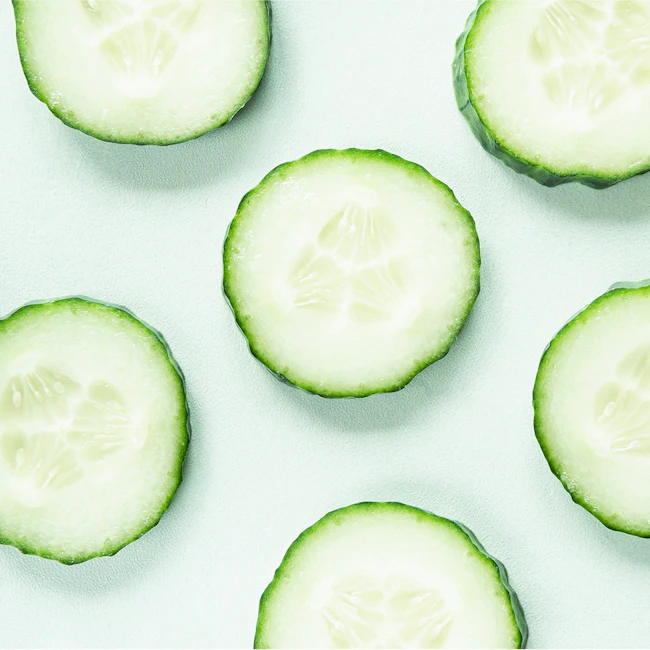
Fruit Eater vol.11 Cucumber
SUMMARY
- ・Is a cucumber a vegetable?
- ・How to write cucumber in kanji?
- ・Deliciousness of cucumber
- ・Ingredients of cucumber
This is the 11th installment of"Fruit Eaters," which I have been sending as a series of articles.
Today's topic is cucumber.
It is an annual climbing plant with yellow flowers and fruit.
Cucumber, a seasonal vegetable.
The cucumber seedlings at my house are taller than me and have just been trimmed.
As with all vegetables, home-grown vegetables have a different flavor.
That made me wonder.
What is the nutritional value of cucumber? Also, can cucumbers be called vegetables in the first place?
Botanically speaking, the part surrounding the seed is called a fruit, and cucumbers fall under this category, so they are often classified as "fruits" overseas.
It is registered as the lowest calorie fruit in the Guinness Book of Records.
In kanji, it is written as ``cucumber'', ``yellow'', ``mokuwa'', and so on. Each kanji has a meaning and origin.
The place of origin is around the Himalayas from India, and since it came across the Silk Road, it seems to be written as `` cucumber '' as `` cucumber '' referring to the western peoples seen from China.
Cucumbers have a green image, but this is the color of an immature cucumber and turns yellow when fully ripe.
In the old days, the ripe yellow fruit was eaten, so it is also written as "yellow melon".
Cucumbers are also written as ``mokko,'' because when sliced into rounds, the cut end resembles the family crest called ``mokkomon.''
On the other hand, there is also a theory that he designed the cut end of a round slice of a cucumber to create a 'Mokkumon'.
"Mokkumon" was used as a family crest by warlords such as the Oda clan of Nobunaga Oda, the Hotta clan, and the Arima clan.
Also, because it resembled the Aoi family crest of the Tokugawa clan, samurai considered it disrespectful to eat a cucumber sliced into round slices, so it seems that they did not eat it very often.
Even today, the crest that Gion-jinja shrines around the country use as their goshinmon resembles a cucumber, so in some areas, such as Kyoto and Hakata, it is customary not to eat cucumbers during the Gion Festival.
It was originally unpopular due to its strong bitterness, but it is said that its popularity increased rapidly in the latter half of the Edo period due to breed improvement, ease of cultivation, and yield.
Today, various varieties have been developed, such as mini-sized varieties suitable for pickles and pickles, sweet varieties, and ones with a strong aroma and unique flavor.
As a dish, it can be eaten raw in salads, mayonnaise, or miso, or pickled in pickles, kimchi, and lightly pickled vegetables.
It is also delicious when cooked or boiled with garlic, pepper, miso, and tomato. It goes well with pork, pickled plums, and bean sprouts.
By the way, zucchini, which is often served as a stir-fry in Italian cuisine, is similar to cucumber, but it is related to pumpkin.
It is characterized by its low calorie content of 11 kcal per 100g and high water content. It contains vitamins A, B1, C, E, etc., but it cannot be said that the content is high as a fruit.
However, it contains the same amount of vitamin K as lettuce and the same amount of dietary fiber as cabbage, so it compares favorably with other vegetables.
It contains potassium and isoquercitrin, which has a diuretic effect, excretes sodium from the body, and cools the body by expelling the body's accumulated heat.
It is also easy to eat cucumbers, which have a refreshing taste, for the loss of appetite caused by summer fatigue.
Water and vitamin C that are easily discharged with sweat. How about eating cucumbers this summer to replenish lost water and vitamin C?
[edit postscript]
Cucumber contains an enzyme called ascorbinase that oxidizes vitamin C, and it is sometimes said that vitamin C is destroyed. However, due to the reversible property that oxidized vitamin C is also reduced in the body, it is said that there is no physiological problem, so please be careful.

